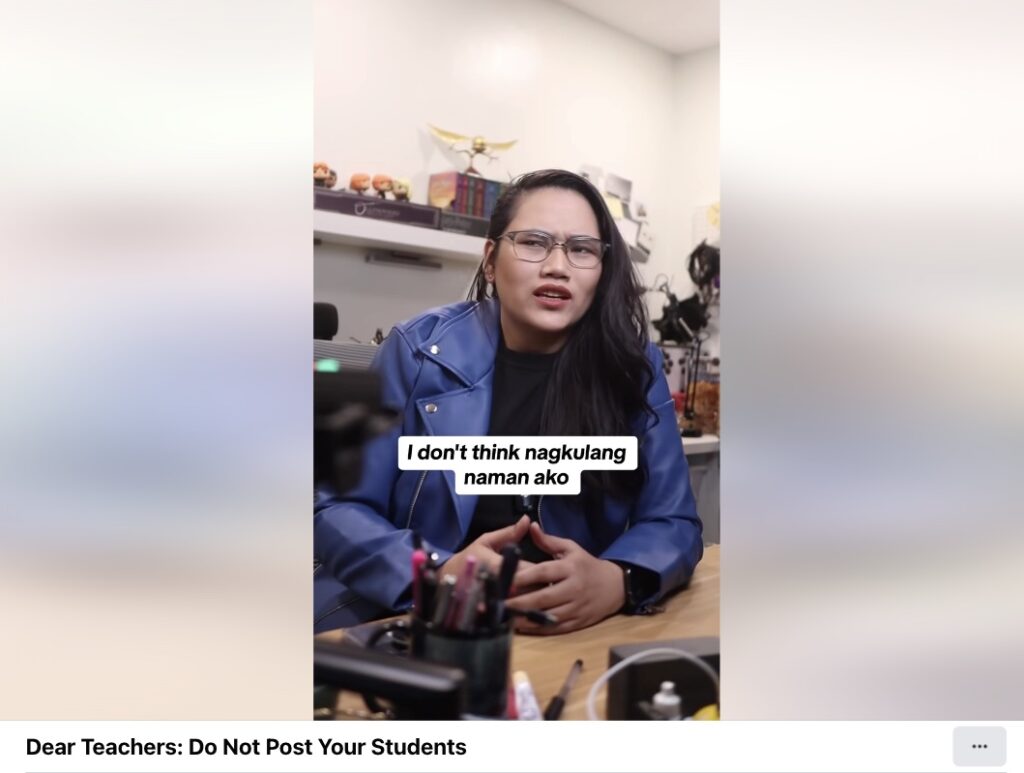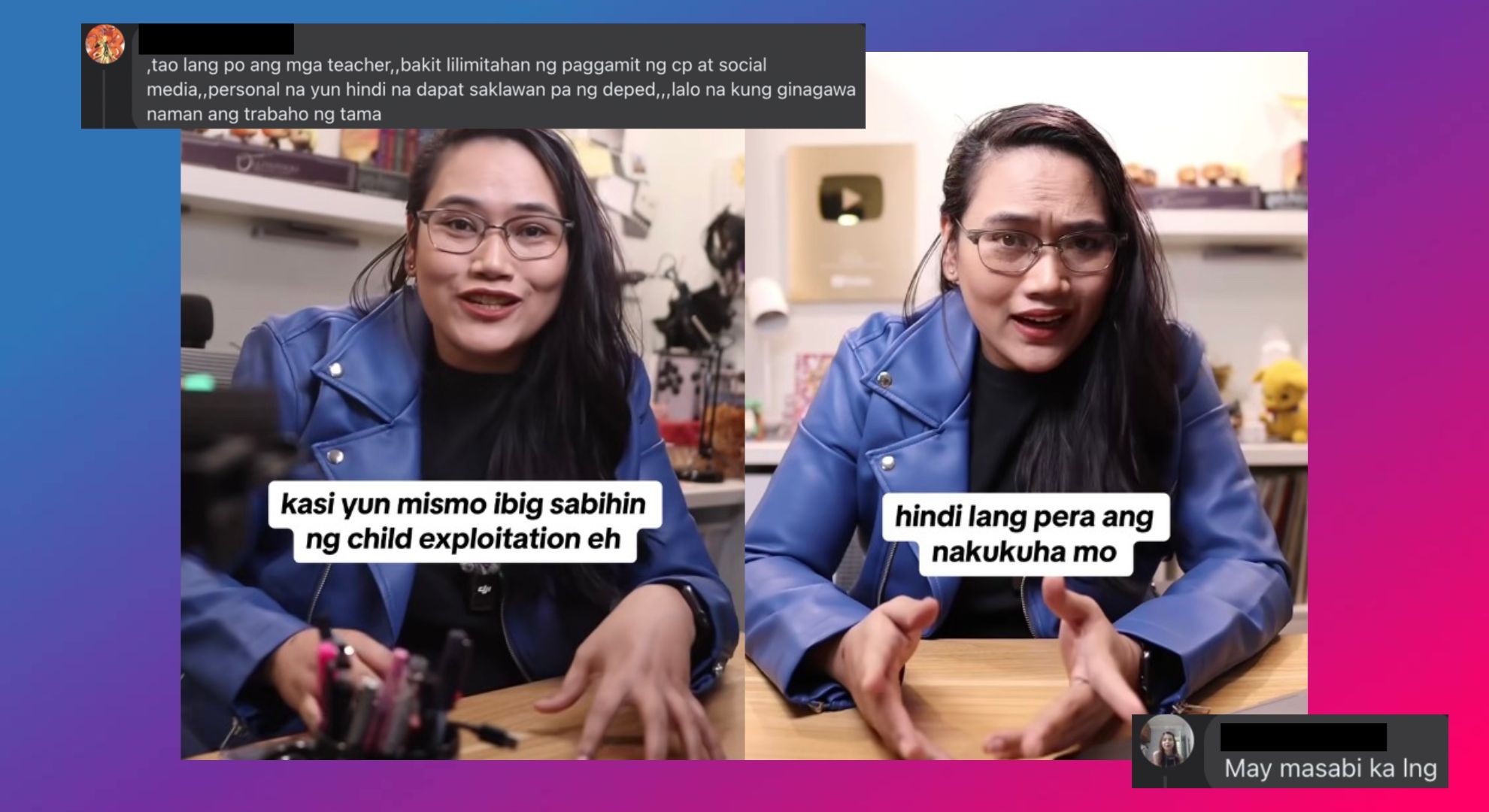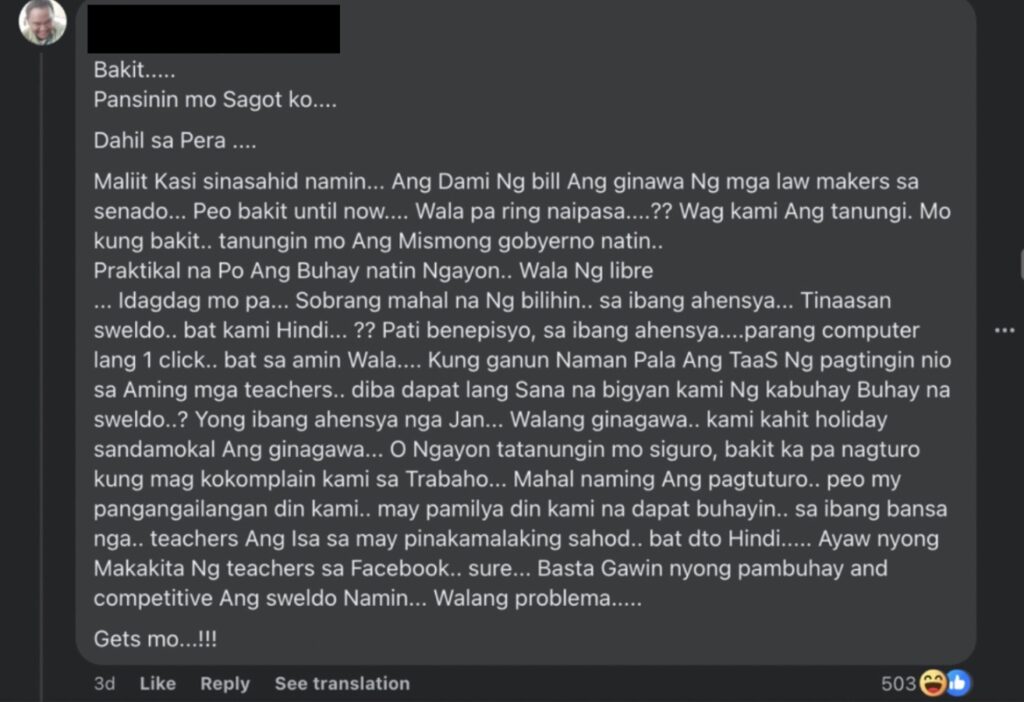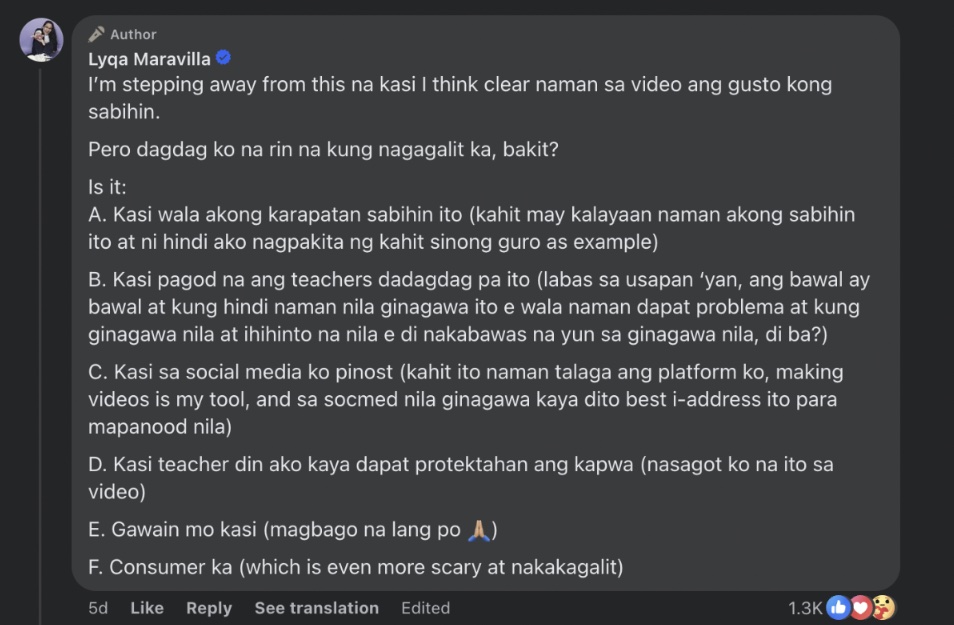Here’s a little tidbit that people don’t seem to get even after being called out for it several times: Stop posting unsolicited videos of people without their consent.
It isn’t too hard to understand, nor is it too easy to overlook. Yet people still do it over and over again just for their own gain—actual content creators and educators alike. In fact, teachers should be at the forefront of shielding their students from unsolicited and unwarranted videos or content.
But, turns out they’re the ones using their students and other minors as a gateway to earning more clout on the Internet—thus leaving these minors at the mercy of malicious users online.
Educational content creator and certified psychometrician Lyqa Maravilla highlighted this phenomenon amongst teachers and educators in a video she posted last April 3, 2024, which now has 56k reactions, 4.3k comments, and 1.4 million views.

In the video, Maravilla expressed her worry for the welfare of students and for the increasing number of videos involving minors being filmed without their consent, which may ultimately lead to cyberbullying and other malicious behavior from viewers online.
She also urged parents to take more caution towards this and addressed the teachers using their students as content with a simple message: Dear Teachers, Do Not Post Your Students.
Most of the reactions to the video were positive, applauding Maravilla for speaking out about it, while others reasoned out their reasons for turning to these actions.
Teachers are known to have a Code of Conduct and Ethics that they need to follow on a day-to-day basis, which also includes how to treat their students and their welfare. With the age of social media having caught up with almost all of us, it shouldn’t be a surprise anymore to have some rules set when it comes to data privacy.
Many countries have rules set regarding students and social media etiquette and enforce a strict policy of not posting these students on social media without the consent of their parents. These rules and policies are set with the well-being and protection of the students in mind and should be followed down to the tee.
In the Philippines, we also have these rules in place, yet teachers and many other content creators still have their way at posting content with their students in full view. Many reason out that the reason they do this is because of the low salaries they get and that they need another flow of income to support themselves and their families.
Those reasons are immediate double whammies that could probably be a reason why their license could be taken away—using your students for monetary and personal gain is a big no no, everyone should know that by now.
If you are a teacher and you are frustrated at the amount that you take home monthly, why use your students as money pigs than finding other niches for you to delve into? Why not express your anger towards your employers and the overall authority of education in the country?
As teachers, you are supposedly owed a lot for the service that you bring to let education thrive in the country. Yet, you still end up doing the not morally good thing for selfish reasons. We’re not saying that you aren’t allowed to make content, everyone who is anyone can make content to your heart’s desire.
But, you just have to remember the repercussions and the danger you’re placing your students under when you post more unwarranted content about them.
Lyqa Maravilla does say it best when she questions why others are mad at the things she said:
As teachers, you (we, if including the author of this piece) should place your students’ interests and well-being first and foremost. If not, then maybe you’re not cut out to be one.
Think about it, would you want your children to be exposed to the toxicity of the Internet because their teachers wanted to innocently post about them on their personal accounts?
Other POP! stories that you might like:
Diwata Pares claps back at ‘haters,’ assures patrons they will remain open despite closure order
Taragis ‘prank’ continues to stoke controversy after admitting it was ‘scripted’ and planned
AlDub’s fandom rage return as they call for another boycott of ‘Eat Bulaga’
Alleged fake priest leads holy mass at a university sports fest opening








